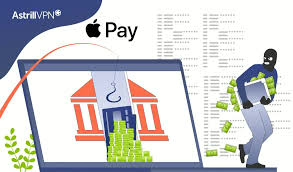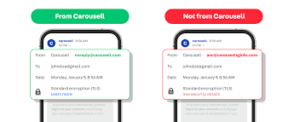Current Scams in Singapore
Scammers are becoming increasingly inventive. Whether they’re enhancing their credibility or infiltrating well-established systems, their methods can deceive even the most cautious individuals.
Here are some prevalent scams in Singapore that you might want to share with your family in your WhatsApp group to help them steer clear of these traps:
1. Purchasing concert tickets from resellers
Many of us have also missed out on securing tickets for concerts by artists like Taylor Swift or Coldplay. In moments of urgency, you may feel inclined to contact ticket resellers to experience your favourite performers live.

However, be cautious. Some resellers exploit vulnerable people eager for a quick deal. Just one day after the presale for Taylor Swift’s concert closed, a fan was scammed out of $700 by a fraudster who vanished, taking her chances of securing tickets with them.
As with any online transaction, a significant warning sign is being asked to pay upfront without verifying that the seller actually possesses the tickets. For transactions of this nature, it’s advisable to meet in person to confirm the authenticity of the tickets before handing over any cash.
2. “Guess who I am” phone call scam
People are generally aware of rejecting calls from unfamiliar international numbers, but it’s much harder to ignore local calls. They could be a callback from a job interview or a reminder for an appointment you might have forgotten.

Exercise caution when you answer a call and the person on the other end says, “Guess who?” In this scam, the caller pretends to be someone familiar, misleading the victim into believing they are a known acquaintance calling from a different number.
To make their act more believable, scammers often use the victim’s name and may engage in light banter, saying things like, “You really don’t recognize me? We’ve been friends for ages.”
3. Deceptive Food Promotions and Advertisements on Social Media Platforms Like Facebook
It can be challenging to pass up an enticing offer. However, as is often the case with scams, if something appears too good to be true, it likely is. This is particularly relevant for food promotions and advertisements that flood social media platforms such as Facebook and Instagram.

Individuals lured by attractive deals, such as $1 dim sum or 60% off seafood, are often directed to a page where they can download a fraudulent application. This scam primarily targets Android users, as the operating system permits the installation of third-party apps with minimal scrutiny.
Once these fake applications are installed, they typically redirect users to a phoney banking website to process payments. These schemes usually involve malware designed to capture and store victims’ banking information. The scammers subsequently gain access to the unsecured bank accounts to transfer funds into their accounts.
Current Scams in Singapore – Transaction Activity
This scam has another equally perilous variation. Victims may receive calls from someone pretending to be a bank representative, alerting them about unauthorized transactions on their accounts. Alarmed, victims are then provided with a link to download a counterfeit version of ScamShield—an app intended to detect scams (the genuine one, that is).

The exact purpose behind encouraging victims to install this fraudulent version of ScamShield remains uncertain; it may be an attempt to obtain the victim’s SingPass credentials. Regardless, it’s crucial to remember that legitimate businesses or banks will never ask you to download an app from a third-party site.
In summary, the best practice is to avoid downloading unverified third-party applications. To ensure an app’s legitimacy, continuously acquire it directly from Google Play or the App Store. Additionally, checking the number of downloads for each app can provide extra assurance, as those containing malware are typically removed within days.
5. Online Purchase Delivery Scam
Almost everyone engages in online shopping these days. It’s a simple and efficient method of having clothing, groceries, and daily necessities delivered right to your home in no time at all, so it’s likely you’re frequently awaiting packages.
However, this is where you could fall victim to a scam. You might receive a text message from a shipping company like DHL, FedEx, or UPS that provides a link to check the status of a package delivery. Clicking on this link may take you to a counterfeit courier site where you will be prompted to enter your personal and credit card information to view your “delivery” updates.
It’s easy to predict what follows – funds are then illicitly withdrawn from your account without your knowledge.
Some individuals have also reported receiving messages about a failed delivery. These texts contain suspicious links intended for rescheduling the delivery, which will redirect you to the same fraudulent page asking for your credit card details.
Another common tactic involves scammers calling you while pretending to be representatives from your courier service. They’ll claim that your parcel is stuck at customs and insist that the only way to resolve the issue is to send a specific amount of money to their bank account.
The simplest way to identify a scam is to verify whether you’ve placed any orders. If you’ve made an online purchase and your package is genuinely delayed at customs, the courier service won’t contact you via phone or text requesting payment for its release. If the caller is asking for money, it’s definitely suspicious—it’s best to hang up.
6. Bank Communication Alerts
Receiving alerts about our bank accounts always puts us on edge, as it involves our hard-earned funds. The screenshot above was shared by Maybelline, a 34-year-old marketing manager who nearly fell victim to this scam.
She recounted how she almost clicked on the link because the sender’s address appeared legitimate, and the message was well-written without any distracting punctuation that might have indicated a scam.

However, upon closer examination, several red flags became apparent:
– The sender used “(OCBC)” rather than simply “OCBC.”
– The message was dated December 26, 2021, yet demanded immediate action on that same day.
– The Bit.ly link did not match the official OCBC website.
In response to ongoing scams, OCBC and other banks have announced that their SMS communications will never include links, helping recipients to spot fraudulent messages more easily.
Typically, banks will send several warnings via SMS or physical letters before suspending an account. Messages demanding urgent action are likely from scammers trying to obtain your personal information before being caught.
Current Scams in Singapore – Verifying with a Friend
Fraudulent callers pretending to be from the bank or the Monetary Authority of Singapore (MAS) often claim that your account has been locked, they can settle debts for you, or they can provide you with a loan. They will then request sensitive information such as your account number, one-time passwords (OTPs), or passwords—information that legitimate banks and MAS would never solicit. If you divulge such details, you may as well roll out the welcome mat for them at your bank.

It’s crucial to understand why banks might contact you and how they confirm your identity as an account or cardholder. Generally, banks will only reach out regarding suspicious activities on your account, such as unusual purchases abroad or outstanding bills. To verify your identity, they typically follow standard procedures.
7. Phony giveaways on Facebook featuring convincing comments
Many people enjoy participating in giveaways on social media. If a friend of a friend can snag a freebie, why not us? However, it’s important to remain cautious when a giveaway appears overly enticing, as scammers often prey on those with hopeful expectations.

These fraudsters frequently mimic well-known brands associated with high-value prizes like luxury cars and high-end electronics. Additionally, their posts typically showcase professionally taken photos and include comments that enhance the appearance of legitimacy.
Though these posts may seem innocuous at first glance—especially since they don’t initially ask for personal information—they can lead to trouble later on.
One example includes a fraudulent giveaway that claimed to offer two lucky winners a “free” Audi R8. The scammers will contact the unfortunate individuals, congratulating them on their supposed win. The twist? To claim the prize, they’ll demand sensitive information such as bank account details. Victims have reported that once they provide this information, the scammers disappear, leaving them without the promised reward.
To protect yourself, always verify that the social media page is authentic. Official pages for brands, banks, or government entities typically feature a blue verification tick next to their name on platforms like Facebook or Instagram.
8. Counterfeit Links from IRAS and LTA
Singaporeans generally adhere to the law, and most prefer to stay on the right side of it. This makes them susceptible to scams that mimic official government agencies.
One prevalent scam involves a text message containing a link to a reimbursement form on a counterfeit Inland Revenue Authority of Singapore (IRAS) site.

The scam claims to offer a refund of approximately $1,000 but asks for sensitive personal information, including credit card or bank account details. In certain instances, victims have been instructed to transfer funds to an unrelated third-party bank account to claim the promised refund.
Another instance is a deceptive message purportedly from the “LTA,” warning that you have an overdue fine and suggesting that failure to pay could result in higher penalties. If you receive such a message, don’t panic. Verify any outstanding payments or fines directly on the LTA website and ensure payments are made through authorized channels like an AXS machine.
Always verify the website URL, even if the site looks legitimate. Fraudulent websites often contain just one altered character or piece of punctuation.
9. Fraudulent Art Buyers Targeting Local Creatives
This message is directed at all online business proprietors.
Komicer, the manager of a local illustration studio, shared an experience involving an art scam. In this incident, a con artist pretended to be a genuine buyer interested in acquiring an expensive piece of art. The scammer fabricated a narrative about how his wife had developed a fondness for the artwork, creating a convincing character that made it easy to fall victim to the scheme.
Typically, these scammers will propose less secure payment methods, such as checks, which can quickly bounce, allowing them to obtain artwork without any cost. They may also attempt to collect personal information from you, including your phone number and address.
When Komicer recommended using PayPal for the transaction, it became clear that they were dealing with a classic art scam when the fraudster asked for their PayPal password. The key lesson here is never to reveal your banking passwords or OTPs, regardless of whether the request comes from a stranger or someone you know.
9. Fraudulent Art Buyers Targeting Local Creatives
This message is aimed at all online business owners.
Komicer, the manager of a local illustration studio, shared their experience with an art scam involving a con artist pretending to be a genuine buyer. This individual expressed a keen interest in acquiring an expensive piece of artwork and provided fabricated personal anecdotes, claiming that his wife was enamoured with the piece. These fabricated narratives create a convincing identity, making it easy for unsuspecting sellers to fall victim.

Typically, scammers will propose less secure payment methods like cheques, which can quickly bounce, allowing them to obtain artwork without payment. They may also attempt to gather personal information, such as your contact number and address.
When Komicer suggested using PayPal for the transaction, they recognized it as a classic art scam when the fraudster asked for their PayPal password. The key takeaway is never to share your banking passwords or one-time passcodes, regardless of whether the request comes from a stranger or someone you know.
10. Fraudulent Job Recruiters on Telegram

Today, numerous legitimate job search platforms are available, including Telegram channels that notify subscribers of job openings. Unfortunately, in recent months, there has been an increase in fraudulent individuals posing as recruiters, offering enticing job opportunities with attractive benefits.
11. A conversation with a fake job recruiter via WhatsApp
Once potential victims show interest, these scammers will falsely inform them that they have been hired and request personal information such as phone numbers and bank account details to “finalize” the employment.

There has also been a rise in counterfeit job offers linked to TikTok. After claiming you’ve secured a position, the scammers may then ask you to deposit money into the company’s bank account before you can access your salary.
It is important to remember that you should never have to pay money upfront to receive your earnings. Another warning sign to be aware of is when these so-called “recruiters” immediately request sensitive bank information right after claiming you’re hired.
11. Employment Scams for “Online Marketing Associates’
Similar to the previous scams, bogus part-time job offers have surfaced on WhatsApp for well-known e-commerce platforms like Shopee.
These part-time positions promise earnings of $300-$500 daily for completing various tasks. The primary responsibility involves assisting sellers on the e-commerce platform to enhance their sales and ratings through advance purchases.

Of course, the victims themselves make advance purchases of shop items. With the lure of “commission,” the payments are requested to be sent to a designated bank account provided by the scammer.
12. Unauthorized emails or payments from Apple
Current scams in Singapore – fraudulent Apple email and link

While the Apple ecosystem generally offers a secure environment, it does not deter scammers from executing phishing schemes through emails that impersonate Apple. These deceptive emails often assert that your account has been locked or compromised, prompting you to reset your account by clicking on a provided link. However, instead of protecting your account, you end up exposing your login credentials.
Current scams in Singapore – authentic Apple invoice
Genuine emails, such as this invoice from Apple, will typically contain your details, including your billing address and full name. Apple will never ask you to click links or provide personal information.
Typically, official communications from Apple come in the form of invoices that include data hackers wouldn’t possess, like your billing address. For Apple-themed emails that are not invoices, it’s wise to verify the sender’s email address. If you want a reliable method to check if your account has been compromised, reach out to Apple through the “Apple ID” support option.
Recently, this hasn’t been the sole method through which Apple users have lost money. One individual experienced a loss of nearly $205 in just one week due to what she believed were legitimate transactions on her Apple account.
She frequently received notifications about transactions labelled “APPLE.COM/BILL” and thought little of them since the amounts deducted from her bank account were minimal. However, these small charges quickly accumulated. Upon further investigation, she discovered that these transactions were not authorized by Apple at all.
If you observe these minor transactions on your bank statement, contact your bank immediately to cancel your cards and prevent further unauthorized withdrawals from your account.
Carousel Fraud
Carousell Seller Duped Over Dior Glasses
One Carousell user fell victim to a scam involving her sunglasses, only to discover later that the item was being resold for a profit. (Image credit: Krystal)
Carousell is a popular platform for snagging bargains on a wide range of products, from designer handbags to Nintendo Switch consoles. However, it also attracts individuals with malicious intent who pretend to be genuine buyers or sellers.

In the past, scams primarily involved sellers who accepted payments for counterfeit, damaged, or nonexistent items. To address this issue, Carousell implemented a new payment system called Caroupay, which holds funds until buyers confirm that their orders have been received in satisfactory condition.
While this measure seemed effective against scammers, dishonest individuals have adapted by creating new tactics. Now, some fraudulent buyers request refunds by alleging that the items did not match their descriptions. They often relist these valuable items on other accounts, essentially profiting without any legitimate transaction.
The landscape of scams is clearly shifting. A helpful tip is to remain cautious during high-value transactions and thoroughly check the feedback from both sellers and buyers. Accounts lacking reviews or listings should raise red flags, so it’s wise to avoid them.
I prefer to meet in person for transactions. The worst-case scenario might involve being stood up, but at least you won’t risk losing money.
14. Scams Involving Instagram Ambassadors
The dazzling lifestyle of influencers can be tempting, and scammers exploit this allure. As you scroll through your stories, you might notice ads from lesser-known brands seeking ambassadors. They make the process seem effortless—click the link, provide your details, and voilà, you’re their perfect candidate.

They claim that in return for a review or a feature on your social media, you’ll receive an exclusive promo code for a discount. Sometimes, they even offer free products, asking only for shipping fees that may exceed the item’s cost. This leads to a waiting period with no assurance that you’ll receive what was promised.
Current Scams in Singapore – Fake Instagram Ambassador Offers
Before agreeing to any requests for reviews or promotions, thoroughly investigate the brand’s Instagram profile.
Prior to diving into what seems like a promising opportunity, conduct quick Google searches about the company and read reviews regarding its reputation. Frequently, individuals who have fallen victim to similar scams will share their experiences online. If the brand’s social media presence appears new and their offers sound too good to be true, they likely intend to exploit you.
In summary, refrain from sharing personal information, and if you’ve already done so, block them immediately if they reach out.
15. Identity Theft and Impersonation on Instagram
We’ve all been taught as children to be wary of strangers and to protect our personal information. However, when it comes to individuals we recognize, we often let our defences down—something scammers are well aware of and capitalize on. We might not hesitate to share phone numbers or, even worse, hand over substantial sums of money.
A typical strategy employed by these impersonators is to request images of your credit or debit cards along with your one-time passwords (OTPs), claiming they need them to assist you in entering lucky draws on platforms like Lazada or Shopee.

16. Scams Involving “Royalty” and Kidnapping
The intricate tales spun by some con artists could easily rival those found in soap operas or movies. Picture wealthy royals in peril or kidnappers threatening your loved ones. Kudos to them for their creativity!
Although these stories may seem outlandish, it’s often our well-meaning grandparents who fall victim. They would rather sacrifice their savings than see their family in jeopardy. These scams are typically executed through mass emails, phone calls, and online communications.
Anonymous Online Fraudster
Recognizing this type of scam isn’t particularly challenging. Always approach any unbelievable narrative from an unknown source online with scepticism. When it comes to phone calls, it’s wise to avoid answering any from international numbers. Not only could you be dealing with a scam, but you might also incur hefty charges for international calls.

Make it a policy never to send or lend money online, as it’s unlikely you’ll recover that cash. Following that, make sure to reach out to elderly relatives to inform them about the risks of inadvertently depleting their retirement funds.
Spotting Scams in Singapore and How to Protect Yourself

Even if some of us have been fortunate enough to avoid these situations, we shouldn’t become complacent. Complacency can seem absurd—until it happens to us.
In addition to the advice already mentioned, a smart strategy is to keep abreast of the latest news regarding ongoing scams and to safeguard your personal information fiercely.
For additional scams to be aware of, consider checking out:
– Scams in the Philippines to be cautious of
– Online fraud
– Travel-related scams and prevention tips
Maxthon
In the rapidly changing realm of online communication, where the digital environment transforms at a remarkable pace, safeguarding oneself while exploring the vast expanse of the internet has become crucial. Choosing a web browser that prioritizes security and privacy is now more essential than ever. Among the many browsers vying for users’ preferences, Maxthon Browser emerges as an outstanding choice, addressing these critical concerns without charging its users. This innovative browser is equipped with a remarkable set of integrated tools, including an ad blocker and various anti-tracking features, which are vital for enhancing your online privacy.
Maxthon has established a distinct position by focusing on delivering a browsing experience that emphasizes user safety and confidentiality. Committed to protecting personal data and online activities from the numerous dangers present in cyberspace, Maxthon employs an array of effective methods designed to safeguard user information. By utilizing advanced encryption techniques, this browser ensures that sensitive data remains secure and private during your online activities.

Maxthon truly excels when it comes to boosting privacy during online activities. The browser is meticulously designed with a wide range of features aimed at enhancing user privacy. Its robust ad-blocking functionality, extensive anti-tracking tools, and specialized incognito mode all work together to remove disruptive ads and prevent tracking scripts that could jeopardize your online safety. Consequently, users can navigate the web with increased security. The incognito mode further contributes to this feeling of protection, allowing individuals to browse without leaving any digital traces or footprints on their devices.
Maxthon browser is compatible with Windows 11
Maxthon’s steadfast commitment to user privacy showcases its dedication to fostering a safer online space. In a world where navigating the internet can be daunting, opting for a browser like Maxthon empowers users to take charge of their digital experiences, ensuring that their online journeys remain as secure and private as possible.
